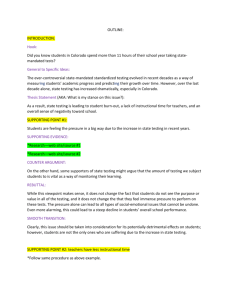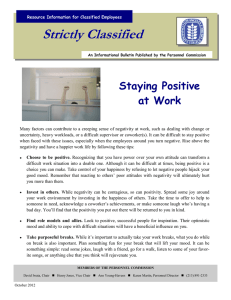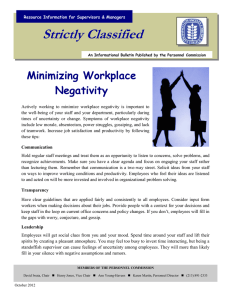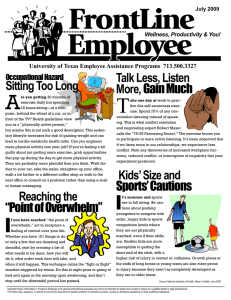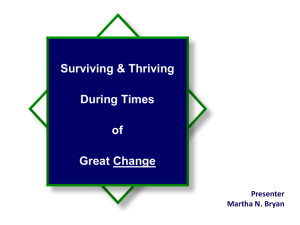BASIC CONCEPTS OF NEGATIVITY
advertisement
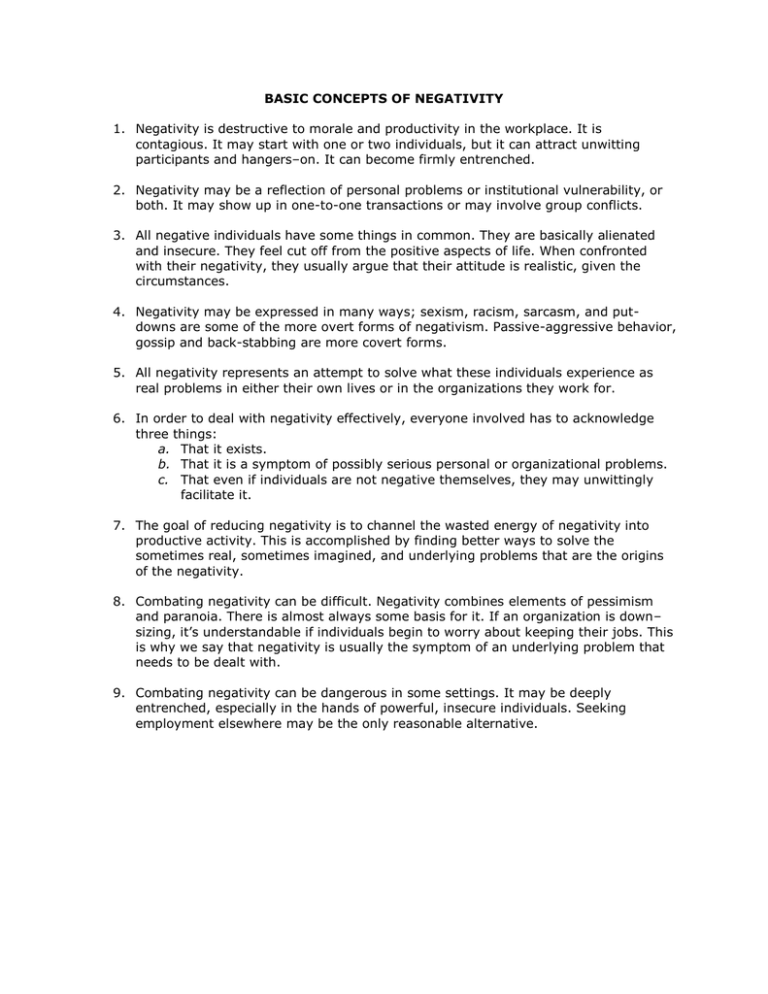
BASIC CONCEPTS OF NEGATIVITY 1. Negativity is destructive to morale and productivity in the workplace. It is contagious. It may start with one or two individuals, but it can attract unwitting participants and hangers–on. It can become firmly entrenched. 2. Negativity may be a reflection of personal problems or institutional vulnerability, or both. It may show up in one-to-one transactions or may involve group conflicts. 3. All negative individuals have some things in common. They are basically alienated and insecure. They feel cut off from the positive aspects of life. When confronted with their negativity, they usually argue that their attitude is realistic, given the circumstances. 4. Negativity may be expressed in many ways; sexism, racism, sarcasm, and putdowns are some of the more overt forms of negativism. Passive-aggressive behavior, gossip and back-stabbing are more covert forms. 5. All negativity represents an attempt to solve what these individuals experience as real problems in either their own lives or in the organizations they work for. 6. In order to deal with negativity effectively, everyone involved has to acknowledge three things: a. That it exists. b. That it is a symptom of possibly serious personal or organizational problems. c. That even if individuals are not negative themselves, they may unwittingly facilitate it. 7. The goal of reducing negativity is to channel the wasted energy of negativity into productive activity. This is accomplished by finding better ways to solve the sometimes real, sometimes imagined, and underlying problems that are the origins of the negativity. 8. Combating negativity can be difficult. Negativity combines elements of pessimism and paranoia. There is almost always some basis for it. If an organization is down– sizing, it’s understandable if individuals begin to worry about keeping their jobs. This is why we say that negativity is usually the symptom of an underlying problem that needs to be dealt with. 9. Combating negativity can be dangerous in some settings. It may be deeply entrenched, especially in the hands of powerful, insecure individuals. Seeking employment elsewhere may be the only reasonable alternative.
